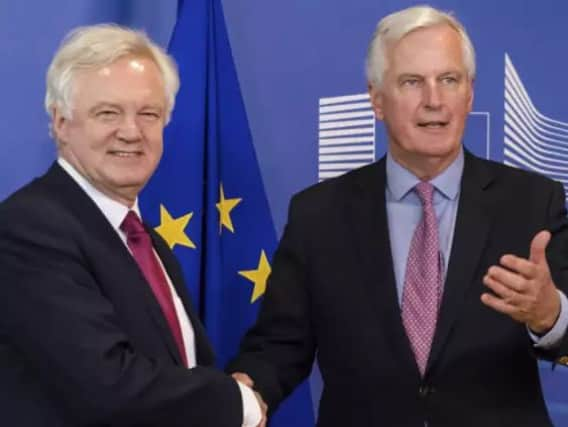Analysis: It could be no-deal next as David Davis hits reality


David Davis has never been one to hold back his opinion, and as his displeasure grew, he wasn’t afraid to make it known. The unofficial tally puts the count at five times that ‘friends’ of Mr Davis briefed that the Brexit Secretary was considering his position, most recently at the start of June when the Prime Minister was reluctant to set a date for the publication of the much-anticipated white paper.
But after the Chequers cabinet summit, nothing: Mr Davis was silent for more than 48hrs. The remaining ‘Three Lions’ of Brexit, Boris Johnson and Liam Fox, have also failed to back the Prime Minister’s compromise in public, having agreed to it in private. The Foreign Secretary is due to address the media at a press conference during an EU Balkans summit on Monday afternoon. It will make for essential viewing.
Advertisement
Hide AdAdvertisement
Hide AdIn the end, it was the Brexit Secretary who was bypassed, with Mrs May appointing the civil servant Olly Robbins - who Mr Davis had already fallen out with when he headed up the Department for Exiting the EU - as her chief Europe adviser at Downing Street. Mr Robbins took on most of the actual negotiating; his impact was immediate, resulting in the development of the controversial Northern Irish 'backstop' proposal in December. Mr Davis, in contrast, met Michel Barnier for a total of four hours this year. An EU source was quoted recently calling him the "tea boy".
It is difficult to see how the Prime Minister's Brexit strategy survives the day. She was already facing a difficult job in appearing before Conservative MPs on Monday to sell the proposal for a ‘common rulebook’ on goods that ties the UK to EU regulations. A few Brexiteers had already said they would oppose it - even more are saying so now, including their spiritual leader, Jacob Rees-Mogg.
At Chequers, Downing Street pushed harder than it had the authority to, briefing aggressively that it would face down Brexiteer cabinet ministers. That bravado has deflated overnight. There isn’t any left for The Prime Minister’s appearance before the 1922 Committee.
There is a majority in the House of Commons for about as soft a Brexit as the Prime Minister can manage, but if there isn’t a majority for it within her own party, how can she force it through? The hubris of her snap election decision last year is back to claim its price.
In the brief window after Chequers, there was a curtain call when it seemed the Prime Minister had triumphed in the cabinet pantomime. The victory was never hers though - her compromise plan was a product of Brexit finally catching up with reality. Mr Davis resignation is another inevitable consequence of coming off second best in the collision with reality. Unless someone can change the script, the next may be a no-deal Brexit.
